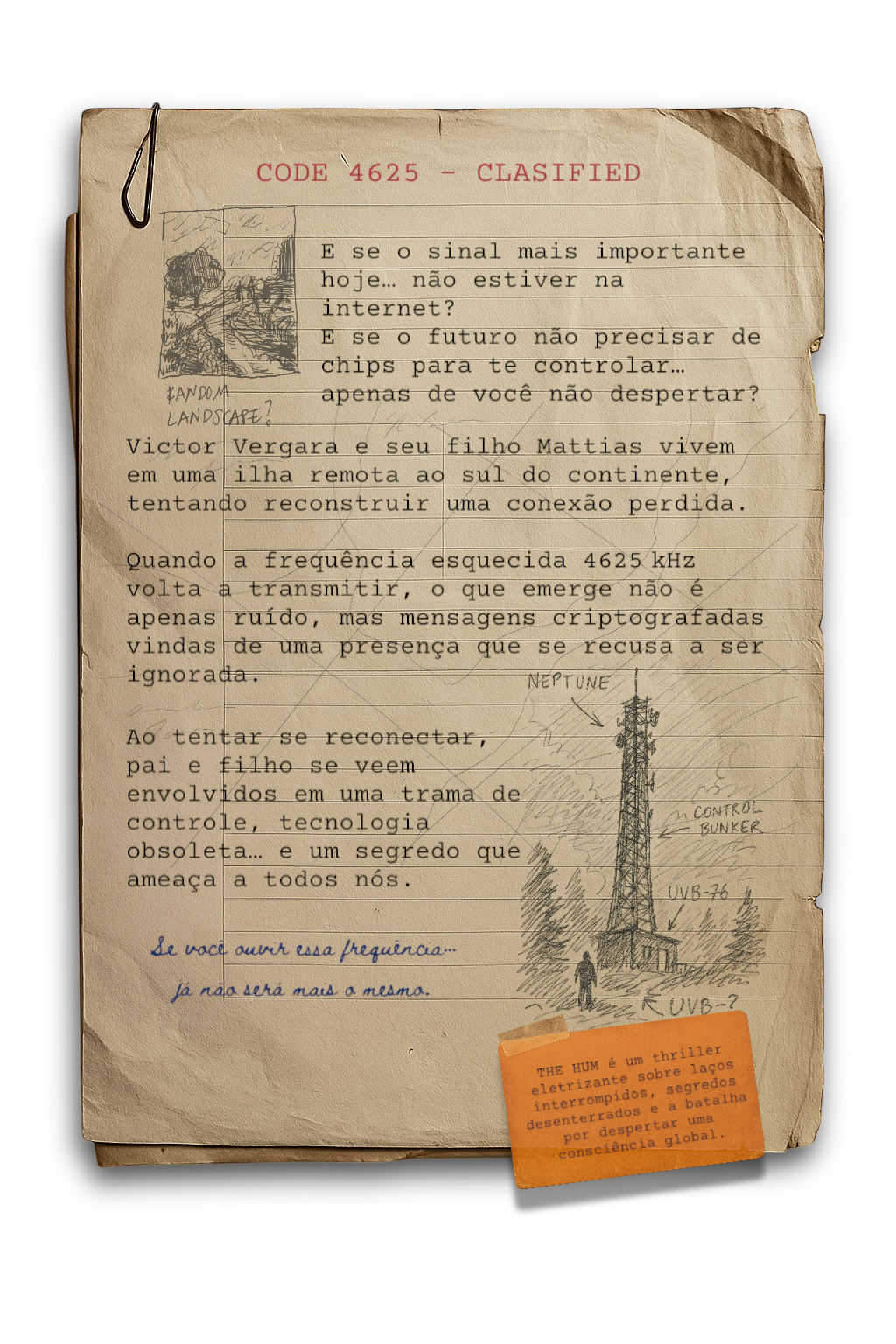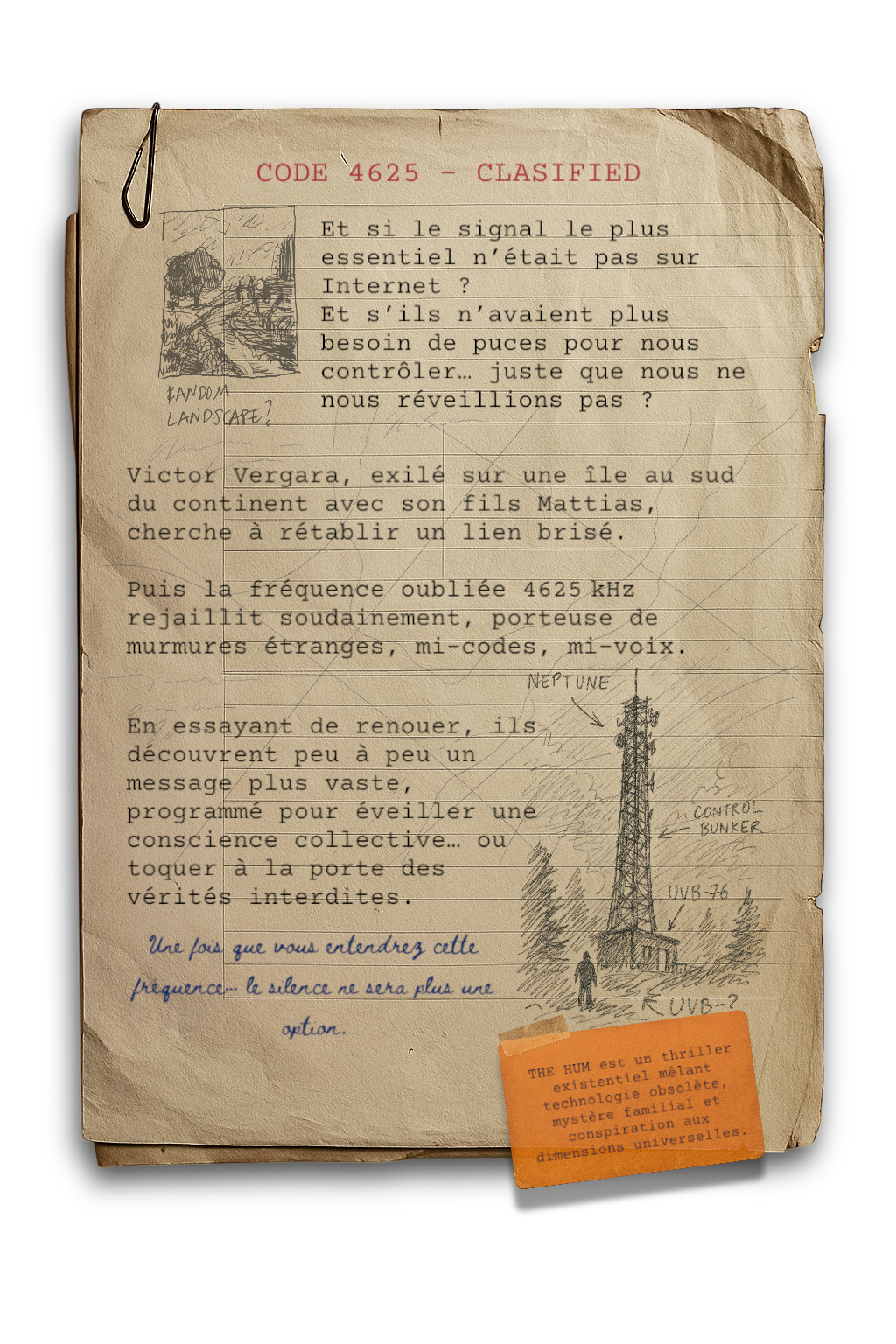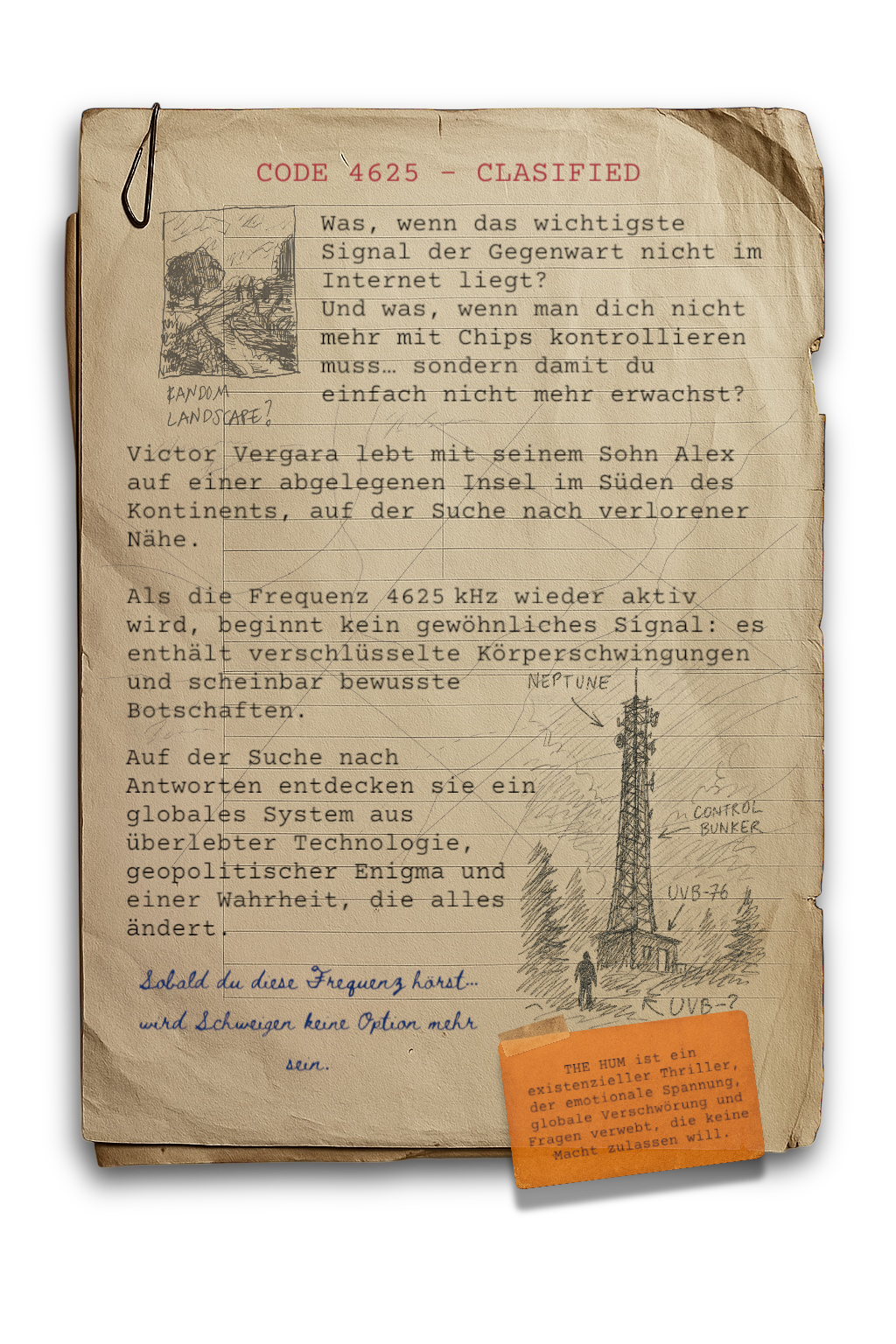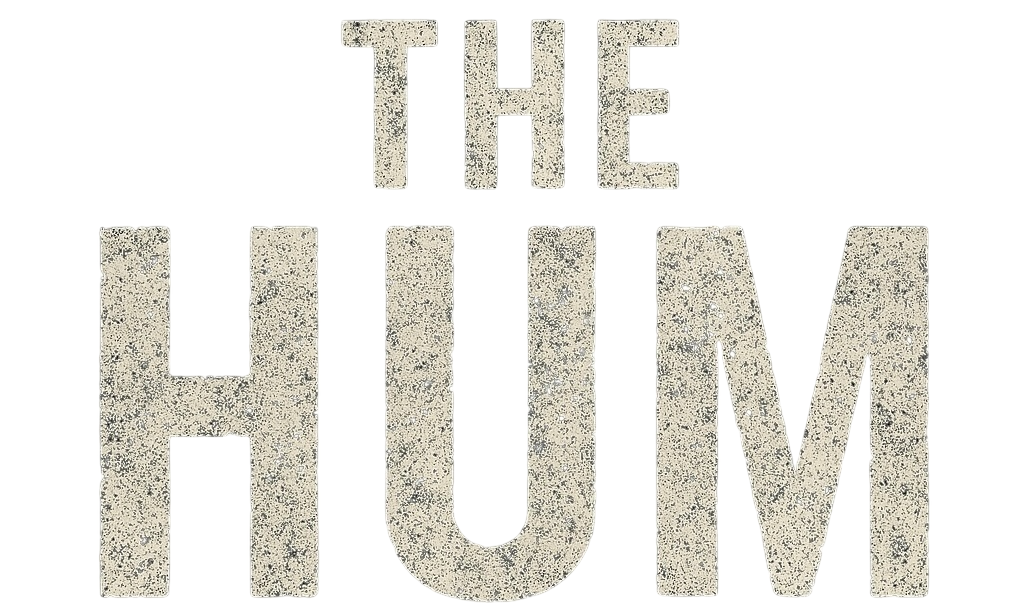
Some signals never die.

© 2025 Gary Milnner | Artist & Storyteller | All rights reserved.
EVERY
SIGNAL
HAS A
SOURCE
© 2025 Gary Milnner | Artist & Storyteller | All rights reserved.
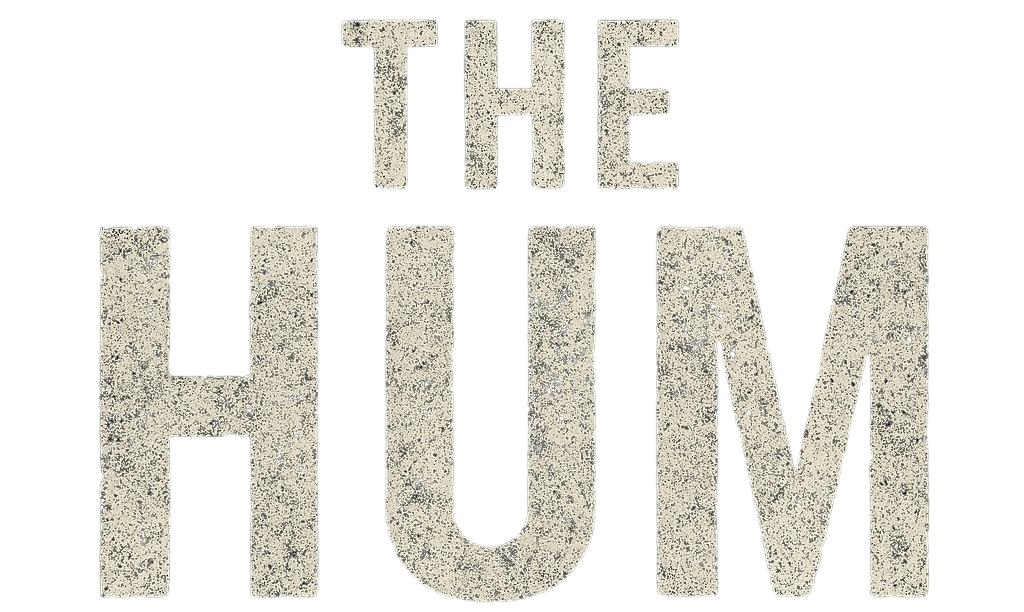
Algunas señales nunca mueren.

© 2025 Gary Milnner | Artist & Storyteller | All rights reserved.
TODA
SEÑAL
TIENE UN
ORIGEN
© 2025 Gary Milnner | Artist & Storyteller | All rights reserved.
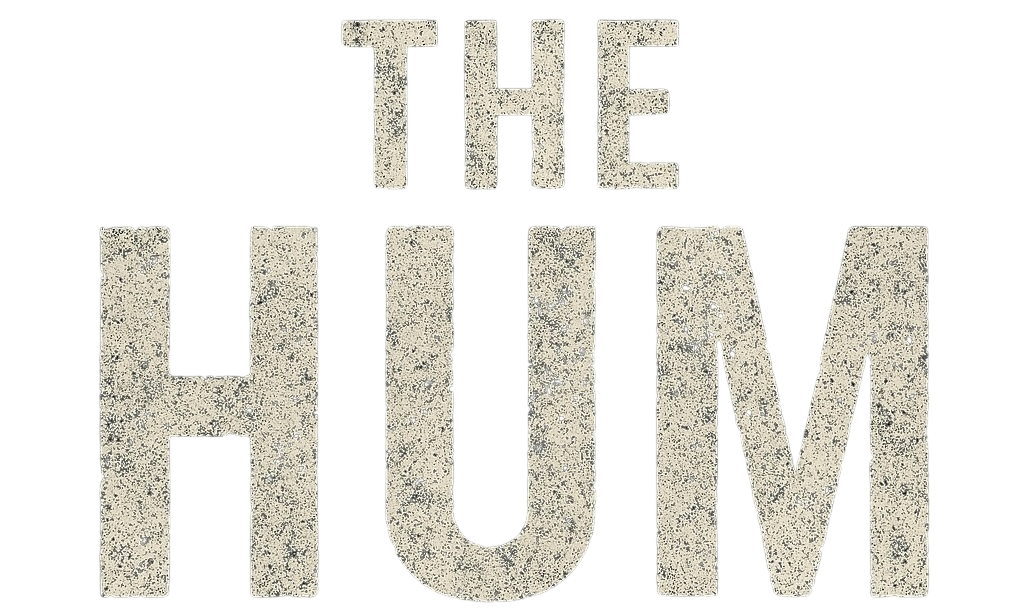
Alguns sinais nunca morrem.

TUDO COMEÇA...
NUM PAPEL
Quer descobrir o que outros ainda não enxergaram?
Receba trechos inéditos, capítulos antecipados e conteúdos que ainda permanecem ocultos.
© 2025 Gary Milnner | Artist & Storyteller | All rights reserved.
TODO
SINAL
TEM UMA
ORIGEM
© 2025 Gary Milnner | Artist & Storyteller | All rights reserved.
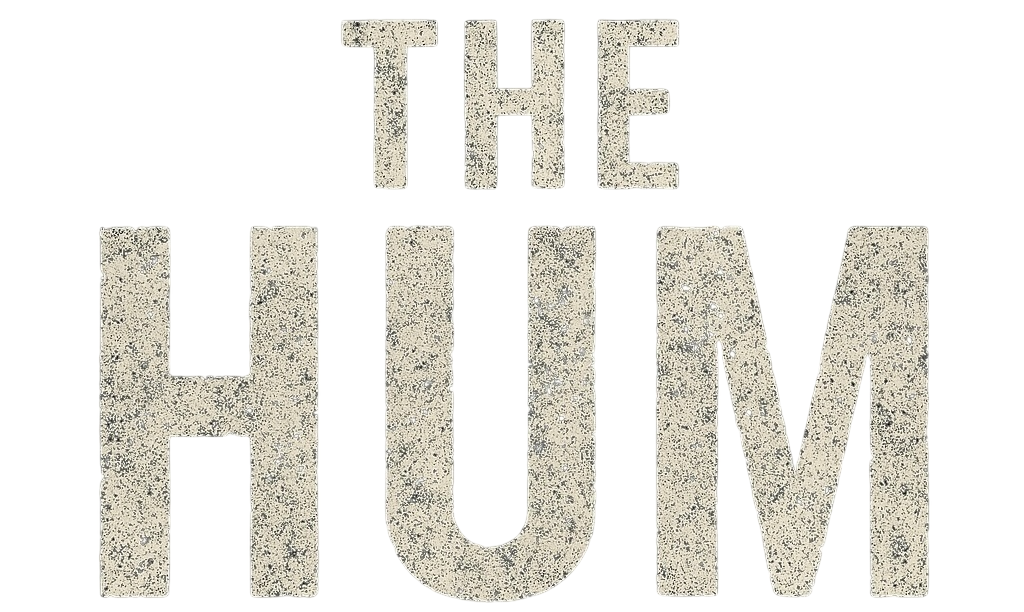
Certains signaux ne meurent jamais.

TOUT COMMENCE...
SUR UNE FEUILLE
Prêt à découvrir ce que la plupart ignorent encore ?
Recevez des extraits inédits, des chapitres exclusifs et du contenu encore tenu secret.
© 2025 Gary Milnner | Artist & Storyteller | All rights reserved.
CHAQUE
SIGNAL
A UNE
ORIGINE
© 2025 Gary Milnner | Artist & Storyteller | All rights reserved.
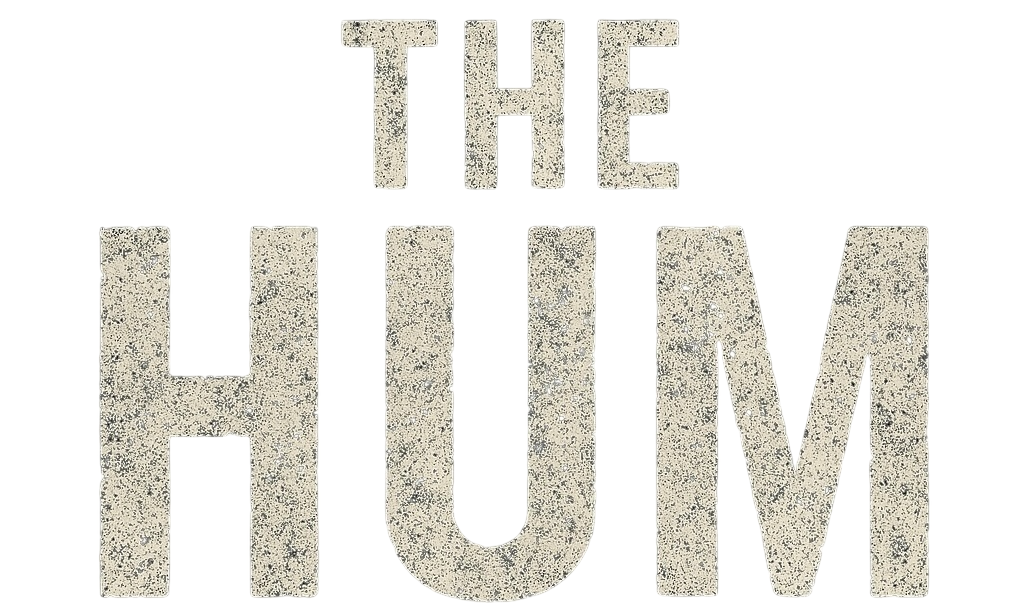
Manche Signale sterben nie.

ALLES BEGINNT…
AUF PAPIER
Willst du wissen, was andere noch nicht entdeckt haben?
Erhalte exklusive Kapitel, unveröffentlichte Fragmente und Inhalte, die noch im Verborgenen liegen.
© 2025 Gary Milnner | Artist & Storyteller | All rights reserved.
JEDES
SIGNAL
HAT EINEN
URSPRUNG
© 2025 Gary Milnner | Artist & Storyteller | All rights reserved.
"The world exists
because of what we don’t see"
PROLOGUE
Since the beginning, everything has been marked by signals.
Before language.
Before fire.
Before any story was ever told...
There were patterns in the sky,
reflections in the water,
shadows stretching where no one walked.
The stars blinked in codes we still haven’t deciphered.
Tides whispered in cycles we’ve long ignored.
Raindrops hit the leaves in pulses
that sometimes felt like messages.
And fire swayed in sequences—
a hypnotic, ancestral tongue, faceless and ownerless.
The universe is not silent.
It never was.
Perhaps we haven’t yet learned how to listen.
There are signals in the color of fruit,
in the invisible dance of the wind,
in the unease of an animal sensing what comes.
Signals in migration,
in eclipses and auroras,
in the way ice cracks just before the thaw.
There are signals in the soul, too.
In the pull to return to a place
we’ve never truly known.
In the dream that repeats.
In the words that appear
as if they had always been waiting to be heard.
In the image that strikes us
as if it had already lived inside us.
But there are other signals.
Deeper.
More ethereal.
Frequencies that don’t fit within the perceptible.
Signals that stretch across the field of the invisible,
buried in the static that lines the very skin of time.
Sometimes we think our technology is what creates them.
But no.
It only participates.
It only tries to use them… or decode them.
Across generations,
we’ve tried to capture the intangible:
in the flicker of torches,
in the rhythm of drums,
in carved symbols on stone,
in ancient and massive
constructions aligned to the sky.
In old instruments and bronze-forged artifacts
made in silence—
tools meant to read the dance of the stars…
All of them, slowly abandoned.
In times that, somehow, still linger.
Pieces of corroded metal…
that still whisper.
And within that unsettling hum…
something waits.
This is not a story about what was.
It’s about what has always been.
What is—
and what is coming.
Waiting, in silence,
for someone—finally—
to detect it.
To hear it.
And if you ever do…
you’ll never return to silence.
And from that moment on,
you’ll know—
the world will never be the same.
© 2025 Gary Milnner | Artist & Storyteller | All rights reserved.
CHAPTER ONE
WHAT REMAINS
BEFORE THE DARKNESS
He clenched the small flashlight between his teeth.
The beam jerked like a frightened eye.
As if it, too, sensed time running out.
Crooked shadows crawled across the walls.
The room seemed unwilling to reveal itself.
Far off, scattered barking carried through the air.
As if the dogs felt it too.
Somewhere, a clock struck 4:27.
The air down here felt heavier.
Thicker.
As if the silence itself resisted being broken.
The walls bled rust.
Cables dangled like ancient roots.
Everything lay still.
Dead.
But the silence wasn’t true.
He had expected this moment.
Not completely. But enough to keep from hesitating.
With his back against the concrete, he cleared what stood in the way.
Stripped it down, piece by piece, until only what mattered remained.
Hidden from the eye—yet certain to his touch.
It looked like all the others.
No marks, no color.
But he knew what it meant.
The flashlight flickered.
His breath stuttered with it.
Everything quickened.
Yet the world slowed.
Without thinking, he turned with a steady hand.
Felt the faint click.
And emptiness surged through him.
Darkness took him.
And with him—perhaps—half a hemisphere.
As if severing that line could erase what was coming.
Everything held in suspension. The breeze returned—yet the world was already changed.
THE ISLAND THAT STILL REMEMBERS
They thought it was over.
That cutting the line would be enough.
But silence was not peace.
It was only a pause—
one that held something else.
Something that still breathed beneath the surface.
The island known as Las Golondrinas appeared on maps as a splinter of land,
off the continent’s southwest coast—
forgotten by progress,
remembered by the wind alone.
It was just large enough for a handful of families to live on—
and just remote enough that no one asked too many questions.
In the 1970s, the government built a maritime radio station on the island.
The highest hill was crowned with a steel tower—
a vertical antenna driven deep into the earth,
built to send and receive signals from fishing vessels,
from other stations…
and perhaps even beyond the horizon.
As time passed and technology moved on,
as satellites conquered the sky,
the station began to fall behind.
First forgotten…
then left to fend for itself.
Like everything else.
The island had a lighthouse on its northern tip,
a school closed for lack of students,
a store that opened only when its owner remembered,
and a memory not yet washed away by the sea.
The villagers—old fishermen, quiet widows,
and young people who chose to stay quieter still—
moved through the streets
as if they sensed something about to happen…
but never spoke of it,
as if saying it aloud might wake it.
And there, in a wooden house facing the southern sky,
a mother waited.
She longed for neither answers nor redemption.
She was simply waiting for her son.
And for the station, once and for all,
to stop remembering.
ADRIFT IN TIME
The boat ride lasted barely thirty minutes,
yet to Victor it felt like crossing an ocean.
He didn’t speak.
Didn’t think aloud.
He only watched—
the way someone stares without seeing,
while something older than childhood stirred inside.
To his right, Alex—Alexander on paper, though no one ever called him that—
listened to music through his headphones, eyes half-closed.
Now and then his fingers tapped,
keeping a rhythm no one else could hear.
His hood was up, his laces undone.
He didn’t look uncomfortable.
Just… absent.
Victor pulled his coat tighter.
Not from cold, but from instinct.
The wind carried salt, rust, and trapped moisture—
the same scent that lingered in the walls of his childhood home,
though he hadn’t lived there for years.
In the distance, the island’s silhouette rose from the mist.
No village.
No houses.
Only a dark hill and, at its peak, the rusted antenna—
tall, unmoving.
Like a needle driven into the back of a sleeping beast.
The boat’s pilot—a thin man with a stone face and eyes that asked nothing—
stayed silent for the entire trip.
He turned his head only once, just enough,
like someone who doesn’t need words
to confirm the course was fixed…
and that return was no longer an option.
Victor closed his eyes for a moment.
The engine’s roar merged with the slap of water against the hull,
and in his mind, something inherited began to stir.
A hum.
Low.
Constant.
Not real.
Not yet.
When he opened them again, the boat was nearing the dock.
The afternoon lay under a cover of low, drifting clouds.
For a few seconds, a pale shaft of sunlight cut through the haze,
bouncing off the water
as if the day’s ending were trying to justify its own existence.
Autumn lingered in the way the wind dragged itself through the cracks in the dock—
not hurried,
but with something that seemed to remember.
The water struck the rotting pylons in broken rhythm,
as if the sea couldn’t decide whether to take them in
or push them back.
The boat drifted closer, tilting slightly—
torn between yielding to the wind or to time.
The pilot cut the engine without a word.
YOU'RE JUST LIKE YOUR FATHER
Victor stepped off first.
Slightly disoriented.
Not by the journey,
but from within.
A dark duffel hung from his shoulder—
the kind carried more from habit than need.
It didn’t weigh much,
yet seemed to hold memories folded the wrong way.
Behind him,
Alex stepped off with his headphones still in place,
a backpack slung over one shoulder,
his expression caught between apathy and annoyance.
At the end of the dock,
a fisherman with one eye slightly askew worked at a torn nylon net.
Another, in a military-style cap, crouched over a bucket, cleaning his knife.
Both looked up as they arrived.
Neither spoke.
They simply watched.
A bit further back,
an old man sat outside a closed bar,
rolling a small metal object between his fingers.
The half-empty bottle on his table trembled in the wind,
but he didn’t seem to notice.
He was watching Victor,
as if he remembered him from another time…
or from a dream left unfinished.
Dora was waiting at the end of the dock.
Small, hunched, wrapped in a wool coat that had once been green.
Her face showed neither joy nor reproach.
Only time.
“I thought you’d never come back,” she said,
as if she’d been rehearsing the line for years.
“So did I,” Victor replied.
The hug was brief.
Not for lack of love,
but because they no longer knew how to reach across so much silence.
Alex, a few steps behind, watched the exchange like an outsider.
When Dora turned to him, she smiled with a sweetness
that seemed too much for her fragile body.
“You’re just like your father,” she said—
though the boy wasn’t entirely sure who she meant.
Alex mumbled a quiet hey,
without removing the headphones resting on his neck.
They headed down the dirt path.
Behind them, the fishermen kept working.
Maybe one of them—the one with the knife—
watched them leave
with the silent expression of someone who senses something…
but chooses not to know it.
THE THING THAT STILL BREATHES
The path from the dock to the village was strewn with loose gravel and damp leaves.
On either side, the shrubs seemed to watch in silence,
as if the wind had already whispered who was coming.
Victor walked ahead, his steps heavier than he remembered.
Not since the last time he was here had they felt so heavy.
Dora followed, with Alex at her side…
though between them, like a mute shadow, trailed the years they’d never shared.
The houses began to appear: weathered wood, rusted tin roofs, walls that had once been white.
Some had curtains. Others stared through bare windows.
No one came out. No one waved.
Only a boy on a bicycle stood still at the corner, watching them pass—
before turning and vanishing down an alley.
An old woman swept the sidewalk outside a house where a cat lingered at the threshold—
still, indifferent, as if the world had passed by too many times to matter.
When she saw them, she paused, the broom halted mid-stroke.
Dora gave her the slightest nod.
The woman resumed sweeping,
as if nothing—and no one—had passed.
At the corner, the wind tugged at a splintered wooden sign.
The faded letters still read:
“Maritime Festival 1987 – Welcome to Las Golondrinas.”
Victor paused to look at it.
The sign hung by a single nail,
swaying like a memory unsure whether to let go…
or keep pretending it was alive.
Still there,” Victor muttered.
“Like the rest of us,” Dora replied.
TIME HELD STILL
The house was exactly as he remembered it—and yet, it wasn’t.
It looked smaller now.
The moss-green paint on the front had faded into a pale, lifeless gray.
The door lock still put up a fight, and when he stepped inside,
the air felt as though it had been sealed in jars for years.
The first sound was the creak of the wooden floor.
The second, silence.
No televisions. No radios.
Only the smell: boiled eucalyptus, stale bread,
and a long, unbroken absence.
“Go on,” Dora said, without looking at him.
“Your room’s the same.”
Victor said nothing.
He left his backpack by the door.
Alex looked around with that mix of indifference and quiet disdain only a teenager wears so naturally.
He walked down the hallway without a word, stepped into the room they’d set aside for him—
and shut the door.
Not hurried, but firm.
Dora stood there for a moment.
Then she turned and walked to the kitchen.
Victor followed in silence,
as if his steps no longer belonged to him.
The kitchen was untouched.
And yet, devastated by time.
A frosted-glass cupboard displayed dishes long unused.
On the wall, a calendar from October 1996 hung crooked,
as if the nail holding it had grown tired.
There were no marks. No dates circled. No scribbles in the margins.
Victor recognized it.
He still remembered the one before: a 1973 edition with landscapes from the south.
The new one had been pinned there later, maybe after something no one ever mentioned—
but everyone understood.
No one in the house had changed the calendar since.
And even though the year meant nothing—no anniversary, no holiday—
Dora had never taken it down.
As if covering a date were easier than living with it.
The cast-iron stove still worked.
On top of it, an enamel kettle whispered softly,
like an animal feigning sleep, waiting to stir.
The kitchen window wore a faded floral curtain.
Through the grimy glass, the sky stayed gray.
And beyond it all, towering over the landscape, the antennas.
Victor stared at them in silence,
the hot tea cupped in his hands.
There was no need to search for them.
They were always there—
like a thought no one dared to say out loud.
Beyond the house, high on the hill, the antennas cut through the haze.
Metal towers from another era,
standing like war memorials—rusted, stubborn, still.
They held a disturbing beauty,
as if they remembered something no one else did.
There were several of them, scattered like the bones of an extinct creature.
But one stood out.
The tallest. The first.
And though no one spoke of it, everyone knew.
The antenna.
The others were there only to keep it company.
Or to obey.
Victor was watching it—but not with his eyes.
It was a deeper pull, a connection that drew him to that upright form,
still standing in silence…
as if it knew something he didn’t want to remember.
The antenna wasn’t just a structure:
it was the place where his father had never really left.
And no matter how much time passed,
that shape endured—upright, timeless, impossible to erase.
“That station should’ve been torn down already,” Dora said,
without meeting his eyes.
Victor blinked, as if waking from somewhere far away.
“You still think about that?”
She turned slightly toward the window.
“Not because of what it is,” she said.
“Because of what it was.”
Victor looked down.
On the plastic tablecloth, a dark wooden box still sat in the same place.
Its bronze latch carried a faint green stain.
He remembered it.
Inside, they once kept what couldn’t be spoken.
Or lost.
On a narrow shelf sat a portrait of Leandro Vergara.
The photo was slightly crooked, but no one seemed willing to straighten it.
His father’s young face looked out, short-sleeved shirt, screwdriver in hand,
standing before a tower of antennas still gleaming.
Victor glanced sideways at it—without meaning to.
“Is it because of him?” he asked, his voice cracking,
like a frequency fading at the edge of the wave.
Dora didn’t answer right away.
She took a sip of tea, set the cup down,
and tucked a strand of hair behind her ear in a mechanical gesture.
Then, with her eyes fixed on the horizon, she murmured,
“Sometimes I think he never left.
Other times… that he never really came back.”
“Came back from where?”
“From Europe. Germany.
Or what used to be Germany. The East.
He returned… but not completely.”
Victor nodded, with that intimate gravity that comes
when someone finally gives voice
to what you’d rather leave unspoken.
In the corner, the wall clock kept ticking—
though its hands were frozen at an impossible hour: 4:27.
The same as in his childhood.
The same as in his memory.
As if, in this house, time itself had refused to move on.
Without lifting her eyes from the cup, Dora murmured,
“That clock always ends up there.
No matter how many times I set it.
I’ve given up trying.”
The ticking went on.
But it measured nothing.
The only sound that didn’t accuse them.
Alex walked down the hallway, headphones hanging from his neck, backpack half open, eyes adrift.
He went straight to his room without stopping.
Closed the door.
The dull thud wasn’t loud, but something in its rhythm split the air.
The afternoon was gone.
What remained was a cold, almost white light,
pushed inland by the sea wind.
The house seemed to breathe more deeply as night fell,
as if trying to release what it had held all day.
Victor stepped out into the small back garden.
The door creaked as it closed behind him,
as if it too had something to say.
The salty wind stirred his memory.
The garden was a rectangle of dark soil,
with thin grass and weeds clinging to the edges.
At the far end, a rusted basin stood as a birdbath—
for birds that no longer came this time of year.
And there, among the roots of a withered vine, he saw it.
The small wooden boat.
Faded, uneven.
A toy, clearly handmade.
On its deck, thin wires still clung, along with tiny metal parts—
clumsily soldered, as if from a long-forgotten childhood experiment.
He picked it up as if touching a sealed wound.
Held it in his hands.
Drew a deep breath, wishing for an instant that time might return it.
He closed his eyes, and the space seemed to fold inward.
—What follows was already written…
© 2025 Gary Milnner | Artist & Storyteller | All rights reserved.
"El mundo existe
por lo que no vemos"
PRÓLOGO
Desde el origen, todo ha sido salpicado por señales.
Antes de la luz.
Antes del fuego.
Antes de cualquier historia…
Había brillos en el cielo, reflejos en el agua, sombras que se alargaban cuando nadie caminaba.
Las estrellas parpadeaban en códigos que aún buscamos comprender.
Las mareas llegaban a bordes que ignoramos.
Las gotas caían sobre hojas con ritmos parecidos a mensajes.
Y el fuego se balanceaba en secuencias, como una lengua hipnótica y ancestral, sin rostro y sin dueño.
El universo no está en silencio.
Nunca lo estuvo.
Quizás aún ni siquiera aprendimos a escucharlo.
Hay ecos en los relámpagos y truenos.
En ese susurro invisible del viento.
En la inquietud del animal que percibe lo que viene.
Presagios en la migración, en eclipses y auroras boreales con sus infinitos resplandores.
También hay señales en nuestro interior, en nuestros latidos.
En el deseo intenso de volver a un lugar que aparentemente nunca conocimos.
En el sueño recurrente que insiste en regresar.
En las palabras que nos llegan como si siempre hubiéramos esperado oírlas.
En la imagen que nos atraviesa como si ya hubiera estado dentro.
Pero hay otras señales.
Más profundas.
Más etéreas.
Frecuencias que no caben en los espacios perceptibles.
Señales que se extienden en el campo de lo invisible,
ocultas en la estática de la misma piel del tiempo.
A veces creemos que nosotros las generamos.
Pero no.
Realmente solo intentamos sentirla o entenderla.
Desde incontables generaciones, buscamos alcanzar lo intangible.
En el resplandeciente brillo de antorchas.
En las vibraciones y ritmos de tambores.
En marcas arcaicas sobre piedras, de antiguas y masivas construcciones alineadas con el cielo.
En esos tempranos elementos forjados en bronce y silencio, que buscaban descifrar la danza de las estrellas…
Todos, lentamente abandonados.
En tiempos que aún permanecen primitivos.
Pero que en la eternidad, todavía ni siquiera han comenzado.
Esta no es una historia sobre lo que fue.
Es sobre lo que siempre estuvo allí.
Lo que está… y lo que viene.
Esperando en silencio, a que puedas comprenderlo.
Y cuando eso suceda,
nunca más volverás al silencio.
© 2025 Gary Milnner | Artist & Storyteller | All rights reserved.
"El mundo existe
por lo que no vemos"
PRÓLOGO
Desde el origen, todo ha sido salpicado por señales.
Antes de la luz.
Antes del fuego.
Antes de cualquier historia…
Había brillos en el cielo, reflejos en el agua, sombras que se alargaban cuando nadie caminaba.
Las estrellas parpadeaban en códigos que aún buscamos comprender.
Las mareas llegaban a bordes que ignoramos.
Las gotas caían sobre hojas con ritmos parecidos a mensajes.
Y el fuego se balanceaba en secuencias, como una lengua hipnótica y ancestral, sin rostro y sin dueño.
El universo no está en silencio.
Nunca lo estuvo.
Quizás aún ni siquiera aprendimos a escucharlo.
Hay ecos en los relámpagos y truenos.
En ese susurro invisible del viento.
En la inquietud del animal que percibe lo que viene.
Presagios en la migración, en eclipses y auroras boreales con sus infinitos resplandores.
También hay señales en nuestro interior, en nuestros latidos.
En el deseo intenso de volver a un lugar que aparentemente nunca conocimos.
En el sueño recurrente que insiste en regresar.
En las palabras que nos llegan como si siempre hubiéramos esperado oírlas.
En la imagen que nos atraviesa como si ya hubiera estado dentro.
Pero hay otras señales.
Más profundas.
Más etéreas.
Frecuencias que no caben en los espacios perceptibles.
Señales que se extienden en el campo de lo invisible,
ocultas en la estática de la misma piel del tiempo.
A veces creemos que nosotros las generamos.
Pero no... realmente solo intentamos sentirla o entenderla.
Desde incontables generaciones, buscamos alcanzar lo intangible.
En el resplandeciente brillo de antorchas.
En las vibraciones y ritmos de tambores.
En marcas arcaicas sobre piedras, de antiguas y masivas construcciones alineadas con el cielo.
En esos tempranos elementos forjados en bronce y silencio, que buscaban descifrar la danza de las estrellas…
Todos, lentamente abandonados.
En tiempos que aún permanecen primitivos.
Pero que en la eternidad, todavía ni siquiera han comenzado.
Esta no es una historia sobre lo que fue.
Es sobre lo que siempre estuvo allí.
Lo que está… y lo que viene.
Esperando en silencio, a que puedas comprenderlo.
Y cuando eso suceda,
nunca más volverás al silencio.
© 2025 Gary Milnner | Artist & Storyteller | All rights reserved.
CAPÍTULO UNO
LO QUE PERMANECE
ANTES DE LA OSCURIDAD
Apretaba la pequeña linterna con los dientes.
El haz de luz se movía errático, como un ojo asustado.
Parecía saber que el tiempo se agotaba.
Proyectando sombras alargadas y deformes, retorciendo las paredes al pasar.
El cuarto reaccionaba.
Se resistía a ser visto por completo.
A lo lejos, se oían ladridos dispersos.
Los perros, inquietos, olfateaban la amenaza.
El reloj, en alguna parte, marcaba las 4:27.
El aire aquí abajo era otro.
Más denso.
El silencio no quería ser molestado.
Las paredes destilaban óxido.
Los cables colgaban como raíces viejas.
Todo parecía quieto.
Muerto.
Pero no era un silencio real.
Había anticipado este momento.
No del todo.
Pero lo suficiente como para no dudar.
Con la espalda contra el concreto,
removió lo que le estorbaba.
Despejó lo innecesario.
Tocó y descartó, uno a uno,
hasta encontrar aquello oculto,
invisible a la vista,
pero que sus dedos reconocieron al instante.
Ese cable no era diferente a los demás, no tenía marcas ni color.
Pero él sabía lo que significaba.
La linterna se entrecortaba, su respiración también.
Todo latía más rápido.
Pero el mundo parecía volverse más lento.
Y entonces, sin pensar, giró con mano firme.
Sintió un clic apenas audible.
Un vacío lo recorrió.
La oscuridad lo alcanzó. Y no solo a él.
Quizás también a medio hemisferio.
Como si, al cortar esa línea, pudiera borrar lo que vendría.
Todo quedó suspendido.
La brisa regresó.
El mundo seguía allí, pero ya no era el mismo.
LA ISLA QUE AÚN RECUERDA
Creyeron que todo se había detenido.
Que la desconexión bastaba.
Pero el silencio no era paz.
Solo una pausa que contenía algo más.
Algo que aún respiraba… bajo la superficie.
La isla conocida como Las Golondrinas se recortaba en el mapa como una astilla de tierra al suroeste del continente, olvidada por el progreso y recordada solo por el viento.
Tenía el tamaño suficiente para que vivieran en ella unas pocas familias, y el aislamiento perfecto como para que nadie hiciera demasiadas preguntas.
Durante los años setenta, el gobierno instaló allí una estación de radiocomunicación marítima.
La colina más alta fue coronada por una torre de acero, una antena vertical anclada profundamente en la tierra, que emitía y recibía señales de barcos pesqueros, otras estaciones… y quizás, incluso más allá del horizonte.
Con el tiempo, y a medida que la tecnología avanzaba y los satélites conquistaban el cielo, la estación fue quedando atrás.
Primero olvidada…
y después, simplemente dejada a su suerte.
Como todo lo demás.
La isla tenía un faro en el extremo norte, una escuela cerrada por falta de alumnos, un almacén que abría sólo cuando el dueño se acordaba, y una memoria que no había sido barrida del todo por el mar.
Los habitantes del pueblo —viejos pescadores, viudas calladas,
jóvenes que preferían callar más aún— caminaban por sus calles, como si supieran que algo estaba a punto de ocurrir… pero sin pronunciarlo nunca, como si el solo nombrarlo pudiera despertarlo.
Y allí, en una casa de madera frente al cielo austral, una madre esperaba.
No anhelaba respuestas.
Ni redención.
Solo aguardaba a su hijo.
Y que la estación, de una vez por todas, dejara de recordar.
A LA DERIVA DEL TIEMPO
El viaje en lancha había durado apenas treinta minutos, pero Víctor lo sintió como si cruzara un océano.
No hablaba.
No pensaba en voz alta.
Solo observaba, como quien mira sin ver, mientras algo más hondo que la infancia se agitaba por dentro.
A su derecha, Alex —Alexander en los documentos, pero nadie lo llamaba así— escuchaba música en sus auriculares, con los ojos entrecerrados.
Cada tanto movía los dedos, marcando un ritmo que no compartía con nadie.
Llevaba la capucha puesta y los cordones desatados. No parecía incómodo. Solo ausente.
Víctor se abrazó un poco más al abrigo.
No por frío, sino por instinto.
El viento olía a sal, a óxido, a humedad acumulada.
El mismo aroma que habitaba las paredes de su infancia, aunque él ya no viviera allí.
A lo lejos, la silueta de la isla emergía entre la neblina.
No se veía el pueblo. No se veían casas.
Solo un cerro oscuro y, en su cima, la antena oxidada: vertical, inmóvil.
Como una aguja clavada en la espalda de una bestia dormida.
El piloto de la lancha —un hombre delgado, con rostro pétreo y ojos sin pregunta— no dijo palabra en todo el trayecto.
Solo giró la cabeza una vez, lo justo, como quien no necesita hablar para confirmar que el destino ya estaba trazado…
y que volver ya no era una opción.
Víctor cerró los ojos.
El rugido del motor se fundía con el golpe del agua en el casco, y en lo más hondo de su mente algo heredado comenzaba a agitarse.
Un zumbido. Bajo. Constante.
No real. No aún.
Cuando volvió a abrirlos, estaban llegando al muelle.
La tarde estaba cubierta por una capa de nubes bajas, delgadas y lentas.
Durante escasos instantes, un rayo pálido del sol atravesaba la bruma, rebotando en el agua como si el final del día intentara justificar su propia existencia.
Se sentía el otoño en la manera en que el viento se arrastraba entre las grietas del muelle, sin apuro, pero con algo que parecía recordar.
El agua golpeaba los pilotes podridos con un ritmo incierto, como si el mar dudara entre reclamar lo suyo o devolverlo
La embarcación se acercó al muelle, medio inclinada… quizás cansada del viento y del tiempo.
El piloto cortó el motor sin decir una palabra.
ERES IGUAL A TU PADRE
Víctor bajó primero.
Casi desorientado.
No por el viaje, sino por dentro.
Llevaba al hombro un bolso oscuro,
de esos que se usan más por costumbre que por necesidad.
No pesaba mucho, pero parecía contener recuerdos mal plegados en su interior.
Detrás de él, Alex descendió con los auriculares aún puestos, la mochila colgando de un hombro y una expresión que oscilaba entre la apatía y el fastidio.
En el borde del muelle, un pescador con un ojo levemente desviado desenredaba lentamente una red de nailon rota.
Otro, con gorro militar, se agachaba a limpiar su cuchillo junto al balde.
Ambos levantaron la mirada al verlos. No saludaron.
Solo observaron.
Un poco más atrás, un anciano sentado frente al bar cerrado giraba un pequeño objeto metálico.
Desde la distancia, siguió a Víctor con una lucidez inquietante y murmuró:
—No debió volver… ahora todo empezará a moverse.
El viento casi borró la frase.
El hombre no apartó la mirada.
Era como si recordara algo que Víctor había olvidado.
Dora los esperaba al final del muelle.
Pequeña, encorvada, envuelta en un abrigo de lana que alguna vez fue verde.
Su rostro no mostraba ni alegría ni reproche.
Solo tiempo.
—Creí que no ibas a volver nunca —dijo, como si hubiera estado practicando esa frase durante años.
—Yo también lo creí —respondió Víctor.
El abrazo fue breve.
No porque no se quisieran, sino porque no sabían bien cómo contactar después de tanto silencio.
Alex, unos pasos más atrás, observaba el intercambio como un extranjero.
Cuando Dora se volvió hacia él, sonrió con una dulzura que parecía no encajar en su cuerpo frágil.
—Eres igual a tu padre —dijo, aunque el chico no sabía a quién se refería exactamente.
Alex murmuró un hola, sin quitarse los auriculares del cuello.
Momentos después, se internaron por el camino de tierra.
Detrás de ellos, los pescadores siguieron su tarea.
Quizás uno de ellos, el del cuchillo, los miró partir con la expresión silenciosa de quien presiente algo… pero elige no saberlo.
LO QUE AÚN RESPIRA
El camino que llevaba del muelle al pueblo estaba cubierto de grava vieja y hojas húmedas.
A ambos lados, los arbustos parecían observar en silencio, como si el viento ya les hubiera contado quién venía.
Víctor caminaba al frente, con pasos que no recordaba tan pesados desde la última vez que estuvo allí.
Dora iba detrás, con Alex al costado… aunque entre ellos, como una sombra muda, se arrastraban los años que nunca compartieron.
Las casas comenzaban a aparecer: de madera agrietada, techos de chapa ondulada, paredes que alguna vez fueron blancas.
Algunas tenían cortinas.
Otras simplemente miraban con sus ventanas desnudas.
Nadie salía.
Nadie saludaba.
Solo un niño en bicicleta, inmóvil en la esquina, los miró pasar antes de dar media vuelta y desaparecer por un callejón.
Una mujer mayor barría la vereda de una casa, y al verlos pasar, detuvo la escoba a medio trazo.
Dora apenas asintió y siguieron adelante.
Fue entonces cuando apareció un gato.
Negro y blanco.
Salió de la casa con paso lento y se sentó en el umbral, observándolos.
Alex lo miró un segundo, siguió caminando y volvió a mirar…
El gato salió otra vez.
La misma pisada.
El mismo movimiento.
El mismo lugar exacto frente a la puerta.
Alex frunció el ceño.
No dijo nada.
La mujer continuó como si nada hubiera ocurrido.
En una esquina, el viento intentaba arrancar a tirones un cartel de madera astillada.
Aún se podía leer, con letras descoloridas:Festival Marítimo 1987 – Bienvenidos a Las Golondrinas
Víctor se detuvo un instante para mirarlo.
El cartel colgaba de un solo clavo, balanceándose como un recuerdo que no sabía si dejarse caer o seguir fingiendo que aún estaba vivo.
—Todavía sigue ahí —murmuró Víctor.
—Como todos nosotros —respondió Dora.
EL TIEMPO PRESERVADO
La casa estaba exactamente como la recordaba.
Y, sin embargo, no era la misma.
Parecía más pequeña.
La pintura verde musgo de la fachada se había vuelto gris pálido.
El cerrojo de la puerta aún resistía, y al entrar, el aire parecía guardado en frascos desde hacía años.
El primer sonido fue el crujido del piso de madera.
El segundo, el silencio.
No había televisores.
Ni radios.
Solo el olor: a eucalipto hervido, a pan viejo, a ausencia prolongada.
—Adelante —dijo Dora, sin mirarlo—. Tu cuarto sigue igual.
Víctor no respondió.
Dejó su bolso junto a la entrada.
Alex recorrió el pasillo con esa mezcla de indiferencia y rechazo que solo un adolescente podía llevar con tanta naturalidad.
Entró en la habitación contigua, la que le habían preparado, y cerró la puerta sin apuro, pero con firmeza.
Dora permaneció un instante de pie.
Luego fue hacia la cocina.
Víctor la siguió en silencio, como si sus pasos no fueran propios.
La cocina estaba intacta, y sin embargo arrasada por el tiempo.
Una alacena de vidrio opaco mostraba platos que ya no se usaban.
En la pared, un calendario de octubre de 1996 seguía fijo, detenido en un mes que ya no existía.
No tenía marcas.
Ninguna fecha rodeada, ningún garabato.
Víctor lo reconoció.
Recordaba el anterior: uno del setenta y tres, con paisajes del sur.
Lo habían cambiado en algún momento, quizá después de algo que nadie nombró, pero todos entendieron.
Quedó ahí.
Y aunque ese año no coincidía con nada, Dora nunca lo bajó.
Como si tapar una fecha fuera más fácil que convivir con ella.
El fogón de hierro aún funcionaba.
Sobre él, una pava esmaltada silbaba bajo, como un animal que finge dormir, esperando agitarse.
La ventana tenía una cortina floreada descolorida.
A través del vidrio sucio, el cielo seguía gris. Y al fondo, dominando el paisaje, las antenas.
Víctor las miró en silencio, con la taza aún caliente entre las manos.
No hacía falta buscarlas.
Siempre estaban allí, como una idea que nadie se atrevía a nombrar.
En lo alto de la colina, las torres metálicas asomaban entre la bruma: verticales como lápidas de guerra, oxidadas, persistentes..
Tenían una belleza perturbadora, como si supieran algo que nadie más recordaba.
Eran varias, en realidad.
Estructuras y mástiles, dispersos como huesos de una criatura extinta.
Pero había una que sobresalía. La más alta. La primera.
Y aunque nadie lo decía, todos sabían cuál era.
La antena.
Las demás estaban allí solo para acompañarla.
O para obedecerla.
Víctor la miraba, pero no con los ojos.
Era una conexión —algo más profundo— que lo atraía hacia aquella forma vertical que aún permanecía, silenciosa… como si supiera algo que él no quería volver a recordar.
La antena no era solo estructura: era el lugar donde su padre nunca terminó de irse. Y por más que el tiempo pasara, esa figura seguía ahí… de pie, sin tiempo, imposible de borrar.
—Esa estación debería demolerse ya —dijo Dora, sin mirarlo.
Víctor parpadeó, como si acabara de despertar de algo muy lejano. —¿Todavía piensas en eso? —
Ella se giró levemente hacia la ventana. —No por lo que es —dijo— Por lo que fue.
Víctor bajó la mirada. Sobre el mantel plástico, una caja de madera oscura seguía en el mismo lugar. El cerrojo de bronce tenía una ligera mancha verdosa.
La recordaba. Ahí adentro, alguna vez habían guardado lo que no podía decirse en voz alta. Ni perderse.
Sobre una repisa angosta descansaba un retrato de Leandro Vergara.
La foto, en blanco y negro, aún parecía transmitir algo que nadie quería interrumpir.
El rostro joven de su padre, con camisa de manga corta y un destornillador en la mano, posaba frente a una torre de antena todavía brillante, como si desde entonces aquella señal lo hubiera estado esperando.
Víctor lo miró de reojo, sin querer.
—¿Es por él? —preguntó, con la voz quebrada, como una frecuencia que se desvanece al final de la onda.
Dora no respondió de inmediato.
Tomó un sorbo de té, dejó la taza sobre la mesa y se acomodó el cabello con gesto mecánico.
Luego, con los ojos fijos en el horizonte, murmuró:
—A veces creo que nunca se fue.
Otras… que jamás volvió de allá.
—¿De allá?
—De Europa, Alemania.
O lo que era Alemania. La Oriental.
Él volvió… pero no del todo.
Víctor asintió, con esa gravedad íntima que llega cuando alguien nombra lo que uno prefería seguir callando.
—Papá, acá no hay buena señal —dijo Alex desde el pasillo, rompiendo el silencio.
Lo dijo sin sorpresa, pero con algo en la voz… como si ya lo supiera.
Y la frase quedó flotando, como una interferencia.
Dora apenas entendió a qué se refería.
Víctor lo miró un instante, con un gesto que decía ya veremos cómo resolverlo, aunque en el fondo intuía que aquel inconveniente tal vez no fuera una mala señal.
En un rincón, el reloj de pared seguía latiendo… aunque sus manecillas, inmóviles, marcaban una hora imposible: 4:27.
La misma de su infancia.
La misma que habitaba en sus recuerdos.
Como si el tiempo, en esa casa, se negara a avanzar.
Dora se quedó mirando el vapor que subía de la taza y suspiró.
—Antes, los días eran más largos… o por lo menos así los recuerdo. Ahora apenas amanece y ya se hace de noche.
Víctor sonrió con un gesto cansado.
—Eso es porque nos hacemos viejos, mamá.
Alex levantó la vista del celular.
—A mí me pasa al revés. Acá todo parece más lento.
O peor aún… suspendido.
Dora lo miró en silencio, como si esa diferencia entre generaciones guardara un secreto más profundo.
—Quizás sea este lugar el que juega con nosotros.
Y luego, acomodando una servilleta que no necesitaba enderezar, murmuró:
—Ese reloj siempre termina ahí…
No importa cuántas veces lo ajuste. Ya me cansé de intentarlo.
El tic-tac seguía, pero ya no señalaba nada.
Era el único sonido que no los acusaba.
Alex no respondió. Volvió a su dormitorio. Sintió que aquí los ritmos eran otros.
La tarde ya no estaba. Solo quedaba una claridad fría, casi blanca, empujada por el viento desde el mar. .
La casa estaba en silencio; parecía respirar más hondo durante la noche, como soltando lo que había contenido durante todo el día.
Excepto por esos pequeños ruidos que solo existen en las viviendas viejas: madera que respira, tuberías que se acomodan, aire que se filtra entre marcos hinchados por la humedad.
Pasada la medianoche, Alex abrió los ojos.
No sabía qué lo había despertado.
Pero afuera, entre la maleza, algo se había movido.
Se incorporó sin encender ninguna luz.
No quería perder la oscuridad; necesitaba ver lo que su intuición había captado antes que él.
Caminó hacia la ventana y deslizó apenas la cortina, lo suficiente para tener un ojo sobre el jardín.
Solo vio sombras.
Sombras y la neblina baja que la noche arrastraba desde el mar.
Esperó unos segundos.
Nada.
Entonces el sonido llegó más claro.
No era un animal.
Ni el viento.
Tenía precisión: el crujido seco de ramas y hojas quebrándose bajo un peso que intentaba avanzar sin llamar la atención.
El cuerpo de Alex reaccionó antes que su mente.
Fue a su mochila, abrió el cierre sin ruido y buscó la linterna.
Sus dedos la encontraron al instante.
Regresó a la ventana y la sostuvo apuntando hacia el lugar donde creía haber oído el sonido, con el dedo inmóvil sobre el interruptor.
Otro crujido.
Más cercano.
Alex apretó el botón.
El haz blanco atravesó la neblina con un trazo recto y firme, dibujando una línea nítida hacia la oscuridad del bosque… hasta que dejó de serlo.
La luz se curvó.
No hacia los lados.
No por un reflejo.
El haz se proyectaba recto hasta cierta distancia y luego se doblaba hacia el suelo.
El estómago de Alex se contrajo.
Movió la linterna hacia otra dirección, buscando descartar lo evidente, y entonces el haz de luz pareció soltarse de la linterna y continuar su trayectoria hasta terminar en el punto donde se apagó de golpe.
Oscuridad total.
Desesperado, Alex respiraba demasiado rápido.
Apretó el interruptor una, dos, tres veces.
Nada.
Mantuvo la vista fija en la maleza, que seguía inmóvil.
O eso intentaba creer.
Siguió insistiendo.
Finalmente, la linterna volvió a encenderse.
Y esta vez el haz era el de siempre.
Firme.
Recto.
Perfectamente lineal, una espada blanca abriéndose paso en la noche.
Alex sintió su propio pulso en los oídos mientras sostenía la linterna sin pestañear, los ojos clavados en el bosque.
Buscaba cualquier indicio, cualquier sombra, cualquier respuesta.
Todo estaba donde debía.
Excepto él.
Algo en él había cambiado.
La casa conservó ese silencio denso durante un largo momento.
Una respiración contenida.
Un intervalo sin dueño.
En esa quietud, Víctor salió entonces al pequeño jardín del fondo.
La puerta crujió al cerrarse tras él, como si también tuviera algo que decir.
El viento salado le despeinó el recuerdo.
El jardín era un rectángulo de tierra oscura, con pasto ralo y maleza a los bordes. Al fondo, una palangana oxidada servía de bebedero a pájaros que ya no venían en esta época.
Y allí, entre las raíces de una parra seca, lo vio.
El pequeño barco de madera.
Descolorido, imperfecto. Un juguete que había sido hecho a mano. En su cubierta aún quedaban restos de alambre fino, pequeñas piezas metálicas, unidas como si fueran parte de algún experimento infantil.
Víctor se agachó con lentitud y lo recogió como si tocara una cicatriz invisible.
Lo sostuvo entre las manos.
Respiró hondo, queriendo por un instante que el tiempo lo devolviera.
Cerró los ojos y el espacio pareció doblarse hacia adentro.
A la mañana siguiente, ya nada estaría en su lugar.
—Lo que sigue ya estaba escrito.
© 2025 Gary Milnner | Artist & Storyteller | All rights reserved.
CAPÍTULO DOS
LA RUPTURA
1973 - PRIMERAS SEÑALES
La vista era peligrosa y deslumbrante.
Los techos de chapa se extendían como un mar de espejos rotos, devolviendo con furia los rayos del sol.
Él no tenía la edad ni el permiso de estar ahí arriba—salvo cuando su padre lo enviaba en aquella misión.
Tembloroso, a cuatro metros del suelo, avanzaba por la cresta ardiente del techo.
Abajo, su madre contenía el aliento, con los ojos fijos en cada vacilación.
Entonces miró hacia el horizonte: algo vibró en su interior —miedo y gloria al mismo tiempo.
El instante parecía sostenerlo todo.
Dio dos pasos más.
Se aferró al tubo oxidado que apenas sostenía la antena de aluminio. El metal crujió bajo su peso.
Por un instante, mástil, señal y cielo, le pertenecía.
Giró con cuidado aquello, semejante al esqueleto seco de un pez empalado, ofrecido al cielo o a alguna deidad de las frecuencias invisibles.
Comprendía que su mínimo movimiento podía alterar la imagen del mundo.
—¡Ahí… ahí! ¡Un poco más a la derecha! —gritaba el padre desde la sala, golpeando el costado del televisor.
El niño obedecía, mientras el calor le quemaba las manos y los pies.
El abuelo, en cambio, permanecía en silencio.
Sentado en el corredor, encendía su radio portátil a baterías y afinaba el dial con la precisión de un ladrón de cajas fuertes.
No buscaba ruido.
Buscaba señales.
La antena vibró un instante.
Y el aire, que hasta entonces era simple brisa, se volvió otra cosa.
Era septiembre de 1973.
The Dark Side of the Moon flotaba en las radios.
El escándalo Watergate incendiaba titulares.
El Concorde rasgaba el cielo.
El mundo entero parecía avanzar.
SOMBRAS EN LA NIEBLA
Al caer la noche, cuando el viento descansaba y las sombras se apagaban sobre el muelle, El Ancla Rota era el sitio donde los ánimos volvían a encenderse, entre risas y relatos que mezclaban verdad y mentira en la misma jarra.
La taberna olía a sal y madera húmeda.
El suelo estaba manchado de vino barato, pan duro y colas de sardina, incrustadas como huellas de otra marea.
Las lámparas colgaban bajas entre redes viejas, como si también ellas se hubieran cansado del humo.
Allí, entre voces gastadas y risas gruesas, los hombres del pueblo se reunían a jugar cartas, apostar monedas y como siempre, exagerar sus hazañas en el mar.
Las historias se entrecortaban.
Uno empezaba, otro lo interrumpía, un tercero lo desmentía, y un coro de carcajadas desdentadas lo respaldaba.
No faltaba el que olvidaba la mitad de la historia ni el que la estiraba con imaginación sobrante.
El dueño del local —un viejo marino que había preferido quedarse a la vista de su amor eterno, el mar— se reía de todos mientras llenaba vasos.
A veces, entre mano y mano de cartas, acariciaba su pequeña radio de onda corta como si fuera una mascota.
Juraba que con ella podía enterarse de lo que pasaba al otro lado del mundo.
Los pescadores lo escuchaban entre incrédulos y respetuosos, porque cuando surgía alguna disputa sobre un suceso lejano siempre terminaban preguntándole a él.
Con las copas, las anécdotas se volvían más audaces.
Uno juraba haber visto una ballena del tamaño de una iglesia, que nadaba recta, sin hundirse ni desviarse un solo grado.
Otro, apenas de pie, levantaba el vaso medio vacío y gritaba:
—¡No habrá sido la ballena que fulano esperaba esas noches, llevando carnada en esas cajas extrañas, eh!
Las carcajadas estallaban.
—¡Eso era un secreto! —contestaba alguien desde el fondo.
—¡Un invento para no pagar las cuentas! —remataba otro.
Entonces, con un gesto más serio que de costumbre, el dueño dejaba caer unas palabras, como si quisiera iluminar la charla por un instante:
—Quizá no fue una ballena… sino otra cosa.
Tal vez un barco que no debía estar allí.
O incluso un submarino.
—¡Entonces debería haber sido amarillo! —gritó alguien desde la penumbra, golpeando la mesa.
El que estaba a su lado pareció despertar, volcó dos vasos y se echó a reír sin entender por qué.
El lugar entero estalló en risas que borraron cualquier intento de explicación.
De vez en cuando aparecían hombres que no eran del lugar.
Algunos decían venir por trabajos de pesca, otros cargaban herramientas de construcción.
A más de uno se le notaba un acento apenas distinto al hablar.
No era algo evidente: entre humo, vasos vacíos y risas, cualquiera podía sonar forastero.
Al fin y al cabo, hasta el marinero más conocido terminaba con un tono extraño cuando el licor le aflojaba la lengua.
Durante el día se veía a alguno de ellos abrir pozos con herramientas poco comunes, en puntos dispersos de la isla, sin lógica aparente.
Nadie explicaba demasiado.
Y por las noches se sentaban en mesas apartadas, bebiendo poco, escuchando mucho.
No hablaban casi nada.
Apenas sonreían o asentían cuando las carcajadas de los pescadores llenaban el aire.
Como si solo hubieran venido a recoger las historias que allí se contaban.
La taberna siguió llena de humo y carcajadas.
Afuera, la bruma borraba el horizonte.
Y lo que ocurría dentro parecía no dejar huellas:
solo sombras en la niebla, destinadas a desvanecerse cuando amaneciera.
AGUAS PROFUNDAS
A primera hora, en una playa inaccesible al sur de la isla —en la media luna de arena estrecha donde la marea siempre llegaba antes que la gente— dos pescadores vieron algo que no pertenecía al paisaje.
Desde lejos parecía una esfera semi enterrada en la arena, opaca, sin brillos; la luz del amanecer no se reflejaba en ella.
Simplemente… la evitaba.
Caminaron rápido, más por impulso que por curiosidad.
Y a medida que avanzaban, la silueta comenzó a adquirir una forma demasiado precisa para ser natural.
No era una roca.
Ni un equipo marino.
Era metal.
Una esfera deformada, abollada, incrustada en los restos de un cuerpo cubierto por un traje grueso, oscuro, agrietado en varios puntos.
Alrededor, fragmentos dispersos, piezas rotas, restos de equipo; trozos irreconocibles esparcidos entre la arena y las piedras.
En algunas uniones del traje, adherido con una resistencia inquietante, un material oscuro y extraño, de textura irregular y apariencia densa, como si hubiese sido arrancado de algo más grande.
No era algo arrastrado por la corriente.
Era algo que el mar había devuelto solo porque no había logrado retenerlo.
Era una escafandra.
Antigua y moderna a la vez.
No pertenecía a ningún aquí ni a ningún ahora.
Y lo peor: todavía estaba puesta sobre el cuerpo del buzo, boca abajo, con el torso hundido en la arena húmeda.
La marea había retrocedido hacía minutos, dejando un contorno irregular alrededor del cadáver, la marca indecisa de un retroceso reciente.
Entre la arena, debajo del cuerpo, encontraron fragmentos de un material difícil de describir: no era metal, ni vidrio, ni piedra.
Tenía un brillo tenue, frío, que no correspondía a la mañana.
Uno de los fragmentos vibró apenas cuando lo tocaron, un temblor mínimo, como si aún conservara memoria.
Los pescadores se tensaron.
No sabían por qué, pero entendieron que no debían volver a tocarlo.
Hicieron fuerza y lograron girar el cuerpo.
Quedaron inmóviles.
El rostro del joven apareció debajo del vidrio agrietado de la escafandra: piel pálida, rasgos asiáticos… pero no reconocibles, como si una simetría invisible desajustara lo que debía ser familiar.
Había algo en él que parecía alterado.
O borrado.
El traje estaba desgarrado en varias partes; asomaban conductos metálicos sueltos, placas internas y segmentos de tela saturadas de sal.
No llevaba identificación visible.
Solo una placa ovalada en el pecho, con una serie grabada en cortes perfectos: 16-12-5-1-15.
Números sin contexto.
Sin explicación.
Sin país.
Los pescadores intercambiaron una mirada que no buscaba respuestas; apenas intentaba sostener lo evidente.
Y fue entonces cuando el más joven, casi en un susurro, dijo lo único que ninguno quería preguntar:
—¿Cómo llegó esto hasta acá… si nada de esto puede flotar?
El silencio posterior no fue natural.
Fue un silencio que parecía escuchar.
El pescador mayor tragó saliva, sin apartar la vista del casco, y añadió con una voz que no parecía suya:
—Para que la marea lo traiga… primero tuvo que subir.
Y nada tan pesado sube solo.
Ahí fue cuando entendieron —sin entenderlo—.
No lo había traído el mar.
Lo había soltado algo más.
No hicieron falta más palabras.
No había un “qué es esto”, sino algo más simple y más terrible: esto no pertenece a este lugar.
Fue entonces cuando escucharon, a lo lejos, el motor de una lancha.
No era común en esa parte de la costa, y mucho menos a esa hora.
El sonido venía directo hacia ellos, sin titubeos, como si navegara siguiendo una coordenada invisible.
La embarcación militar llegó sin aviso.
Los hombres que descendieron no eran de la isla… y tampoco parecían sorprendidos.
Miraron la escena como quien reconoce lo que había estado buscando.
Interrogaron a los pescadores en voz baja; les pidieron que evitaran comentar lo ocurrido “para su propia tranquilidad... y para no inquietar al resto del pueblo”.
Luego fotografiaron todo: el casco, el traje, los fragmentos en la arena.
Recolectaron cada pieza con rapidez quirúrgica: metal fracturado, tiras internas del equipo, y los restos del material oscuro en un cilindro que sellaron sin pronunciar palabra.
No intentaron ocultar nada.
Solo actuaron con la eficiencia de quien repite un protocolo.
En menos de veinte minutos ya no quedaba nada.
Ni rastros del cuerpo.
Ni del casco.
Ni de aquello que la marea no había podido retener.
Para la tarde, la playa parecía intacta.
Arena lisa.
Sin huellas.
Sin marcas.
Como si el océano hubiese decidido corregir lo que había revelado.
Pero en el pueblo, el rumor del hallazgo corrió rápido, aunque nadie pudiera repetirlo en voz alta.
No desapareció: quedó enterrado en la memoria de unos pocos, solo esperando el momento adecuado para volver a emerger.
EL JUEGO INTERMINABLE
Más allá de lo visible, y por encima del ruido, allí donde incluso la luz perdía sentido, otras señales, más discretas pero igual de trascendentes, comenzaban a marcar un punto en el mapa.
En el hemisferio sur, la tensión se dibujaba con otras líneas.
Las frías caras del norte ya habían trazado una grieta que partía al sur en dos.
Maniobras navales se extendían alrededor del planeta con la precisión de un reloj.
Ejercicios Okeánicos —eco de una era en que el hierro y el silencio gobernaban los mares— tan vastos que, bajo la superficie, decenas de submarinos invisibles iban y venían como agujas negras en mares sin nombre.
A miles de millas, otra señal respondía.
En las profundidades, una red de escucha sumergida rastreaba todo lo que se movía.
Dicen que podía captar incluso el roce de una hélice en océanos lejanos, mucho antes de que nadie supiera que estaba allí.
Era la lógica de la Reina Roja: El juego interminable del gato y el ratón, donde cada avance obligaba al otro a responder, y nadie ganaba realmente, salvo el propio movimiento constante.
En una isla olvidada, el eco de esa fractura llegaba como los sismos: primero un silencio fuera de lugar, luego una vibración que alteraba lo que parecía estable.
La primavera no traería flores.
Solo verde olivo.
La radio en la cocina emitía con una claridad monofónica casi inverosímil.
Una emisora AM transmitía una canción de Violeta Parra, justo antes de dar paso a la cortina solemne del boletín informativo:
—Atención, comunicado oficial número uno del nuevo gobierno. Desde la capital…”
La voz del locutor era firme, sin emociones.
Como si supiera que todo lo que dijera ya era irrevocable.
Dentro de la casa, el mundo aún no se había dado por enterado.
Dora pasaba un trapo húmedo sobre la mesa con movimientos lentos, como si limpiar fuese su forma de sostener el tiempo en su lugar.
Llevaba una blusa color crema, inspirada en las revistas alemanas que circulaban en el barrio, y una falda austera, entallada con un cinturón firme. La había confeccionado la costurera de la esquina —una mujer silenciosa que vivía al ritmo de su máquina negra, tan aceitada como ruidosa, como si también ella combatiera el desorden del mundo a fuerza de puntadas.
En el estante, cerca de la ventana, una fila de frascos de vidrio con tapas metálicas de media rosca atrapaba la luz del mediodía.
Algunos habían contenido café, mermelada o aceitunas. Sus etiquetas ya no decían quiénes fueron.
Dora les había dado un segundo destino: uno para arroz, otro para botones, otro guardaba monedas con letras desconocidas de los países que Leandro había visitado.
El pequeño Víctor estaba en la entrada de la casa, arrodillado sobre una frazada usada como alfombra, dándole forma al barquito de madera que su padre le había regalado la noche anterior.
Tenía entre las manos piezas sueltas: transistores, un cable de cobre pelado, un circuito abierto que le recordaba los aparatos que Leandro reparaba en la estación.
Llevaba puesto un pantaloncillo deportivo y unas zapatillas con la puntera gastada.
Mientras jugaba, su rostro oscilaba entre la concentración infantil y esa admiración callada que solo las décadas devuelven a un hijo cuando piensa en su padre.
—Si le das una vuelta más al alambre, va a llegar más lejos —le había dicho Leandro esa mañana.
El chico no entendía del todo a qué se refería, pero la idea se le quedó grabada.
Intuía que, a veces, un solo giro podía cambiar el alcance de algo invisible.
Al fondo, un televisor alemán en blanco y negro parpadeaba con una imagen inestable, que se deslizaba hacia arriba y hacia abajo, como si no supiera en qué mundo debía quedarse.
Justo encima, asomando entre las antenas en forma de V, un póster a todo color mostraba la célebre fotografía Blue Marble, tomada por la tripulación del Apolo 17.
Leandro se había permitido un lujo ese mes: una revista de ciencias que traía aquel suplemento desplegable.
Televisor, antenas y póster:
El ingenio de lo tangible,
por medio de lo invisible,
en la conquista de lo imposible.
Todo reunido en un rincón del hogar, como un altar silencioso a la ambición humana.
La humanidad había llegado a la Luna, sí…
Pero en esta isla, las señales que importaban no venían del cielo.
Venían de otros puntos.
Más terrestres.
Más cercanos.
EL TIEMPO SE VUELVE TRAICIONERO
Aquel día no parecía distinto a otros.
Pero el tiempo, en retrospectiva, siempre se vuelve traicionero.
Una camioneta militar irrumpió al final de la calle de tierra. No tocó la bocina ni aminoró la marcha. Se detuvo con un frenazo seco que sacudió la cuadra.
Los neumáticos dejaron surcos profundos en la tierra húmeda.
Algunos vecinos, sorprendidos en mitad de sus rutinas, espiaron en silencio tras las cortinas o desde los umbrales, cuidando no ser tragados por la polvareda de esos segundos.
Dos uniformados descendieron.
Uno llevaba un sobre marrón.
El otro, un rostro sin expresión.
Nadie más dijo una palabra.
Dora salió a la puerta, secándose las manos en el delantal.
El soldado le extendió el sobre sin mirarla. No esperó agradecimiento. Ni pregunta.
Leandro apareció enseguida, con el destornillador aún en la mano. El tiempo lo empujaba a cumplir algo que ya estaba decidido..
No hubo gritos. Ni forcejeos. Ni esos discursos que pretenden desviar lo que ya fue dictado.
Solo una mirada entre él y Dora.
Luego, una entre él y su pequeño hijo Víctor.
El niño sostenía su barquito a medio terminar.
Sus ojos, enormes, buscaban en los de su padre una señal.
Leandro le guiñó un ojo. Como quien promete que todo va a estar bien… sabiendo que no lo estará.
Dora cayó de rodillas, como si el suelo fuera lo único que aún podía sostenerla.
El sobre quedó abierto en el suelo. Dentro, un papel sin firma. Solo palabras. Y un sello seco del nuevo orden.
La radio seguía transmitiendo:
—Las Fuerzas Armadas y de Orden reiteran a la ciudadanía el llamado a mantenerse en sus hogares…
El ojo del tiempo se alejaba.
Flotaba por encima:
Leandro, rindiéndose sin resistencia.
Dora, aferrada al suelo.
Víctor, quieto, sin saber que aquella escena lo acompañaría para siempre.
Y el barquito, caído, aún sin terminar.
Y allá arriba, en el cerro… la antena.
Callada. Pero viva.
Y en algún rincón,
en lo más profundo de la isla…
lo que Leandro desconectó no murió.
Solo se ocultó.
Esperando a que el mundo lo olvidara…
para volver a empezar.
—Algunas señales no mueren.
Solo cambian de silencio.
© 2025 Gary Milnner | Artist & Storyteller | All rights reserved.
CAPÍTULO TRES
DONDE LA SEÑAL ESPERA
ENTRE LOS ÁRBOLES
No sabía cuánto tiempo había pasado. Había cerrado los ojos solo un instante… y, sin embargo, algo en el mundo ya no era igual.
El pequeño barco de madera aún estaba en sus manos.
El frío se le había metido entre los dedos sin que lo notara.
Desde el interior de la casa, se escuchaba a Dora mover sillas, platos. Alex no había salido de su cuarto.
Pero allá arriba, en lo alto del cerro, entre los árboles… estaba la misma antena. Silenciosa. Intimidante y fría.
La noche ya había descendido del todo, sin dramatismo. Solo cayó.
La luz en la casa era tenue, casi insuficiente. Como si alumbrar de más pudiera molestar a algo que debía quedarse dormido.
LO QUE GUARDA EL SILENCIO
Víctor no podía dormir.
No era la cama dura, ni el viento.
Era otra cosa. Algo estaba despierto. Y no era él.
Caminó descalzo por el pasillo de madera. La casa no crujía; sus recuerdos sí.
Entró al viejo dormitorio de su padre. Nada había cambiado. El armario seguía cerrado.
Sobre él: una caja de cartón, una radio portátil rota, y un bolso de trabajo.
El bolso de herramientas.
Gris verdoso, lona militar, con las costuras a punto de rendirse, correas endurecidas por los años.
Víctor lo bajó con cuidado. Pesaba más de lo que recordaba. Lo colocó sobre la cama y lo abrió. El olor a metal, grasa y cuero dormido lo envolvió sin permiso.
Adentro seguían las herramientas: destornilladores, pinzas, cortadores, una cinta aislante que ya no pegaba.
Y al fondo, envuelto en una tela oscura, lo inesperado: un manojo de llaves.
Cinco.
Oxidadas. Frías. Ninguna igual.
Cada una tenía una marca grabada a punzón: N1. T2. F3. N4. Y una última, sin letra. Solo el número: 5.
El llavero era de cuero agrietado. Apenas visible, una inscripción: “L. Vergara – MTH-V77”
Víctor deslizó el pulgar sobre el nombre de su padre. Sintió una punzada, como si el cuero, al tocarlo, hubiera recordado algo.
No devolvió el bolso al armario. Lo colocó junto a su cama. Como si su cercanía pudiera, de algún modo, reconfortarle el alma.
Permaneció despierto mucho después de que la casa callara del todo. El bolso, con las llaves, reposaba a sus pies como un animal que lo reconocía a pesar del tiempo.
Miraba el techo. La oscuridad se aclaraba. Y él, sin quererlo, sobrepensaba todo.
IDIOMAS DISTINTOS
Pensaba en Alex. En la forma en que había cerrado la puerta. En cómo evitaba su mirada todo el día. En cómo se había vuelto difícil hablarle sin sentir que usaban idiomas distintos.
Y también pensaba en ella. En Clara.
En su voz cansada por teléfono. En la última conversación que no supieron terminar. En las veces que dijo: “Esto no está funcionando para ninguno de los tres.”
Era cierto. No funcionaba. Y, sin embargo, dolía como si debiera haber funcionado igual.
Ese viaje a la isla no había sido solo un escape.
Era, en su interior, un intento. El último tal vez.
No sabía cómo arreglar las cosas.
No sabía si había algo que pudiera arreglar.
Pero sabía que Alex merecía saber de dónde venía, aunque fuera a través de una abuela frágil y una casa herida.
Víctor giró la cabeza. La pared compartida con el cuarto de Alex parecía más gruesa de lo normal.
Del otro lado, no se oía música. Ni movimiento. Por un instante, pensó en ir a tocar. Decirle algo.
Pero se quedó quieto. Como su padre…
Como tantos hombres antes que él, que quisieron ser cercanos y no supieron cuándo ni cómo hablar.
CUANDO LA LUZ VOLVIÓ
El amanecer llegó con una luz blanca, sin temperatura.
La casa parecía haber envejecido durante la noche.
Víctor se despertó con la sensación de no haber dormido del todo.
Caminó hasta la cocina. Ella ya estaba despierta. Como siempre.
Dora estaba en su silla de mimbre, envolviéndose el chal sobre los hombros.
Delante tenía un frasco pequeño de pastillas, un vaso de agua tibia y unas prescripciones médicas sobre la mesa.
—¿Dormiste algo? —preguntó Víctor.
—Lo justo —respondió ella, con una sonrisa.
Esa sonrisa que solo hacen las madres cuando ya se cansaron de fingir que no están cansadas.
Víctor miró sus manos temblorosas al tomar una de las pastillas.
Era blanca. Pequeña. Pero en sus dedos, parecía una perla aplastada, sin brillo.
Cada una que tragaba era un día más… o uno menos.
Cada mañana, el frasco pesaba un poco menos.
—¿Son nuevas?
—No. Ya ni me acuerdo.
Alex bajó al rato. Ojeroso. Con la remera arrugada y su dispositivo en la mano.
Vestido para otro lugar. Para otra rutina.
Como si aún perteneciera a un mundo que no estaba allí.
Murmuró algo parecido a un buen día.
Lo justo para no parecer un extraño.
Luego se sirvió un café.
Un gesto mínimo, automático… pero bastó para romper el silencio.
Víctor lo observó.
Y después se acercó con cuidado, como si una palabra de más pudiera quebrar algo frágil.
—¿Quieres que salgamos a caminar?
—¿A dónde?
—Quiero mostrarte algo.
—¿Qué cosa?
—Lo único que todavía queda en pie.
Y que, aunque sigue ahí… ya nadie entiende.
DONDE TERMINAN LOS ÁRBOLES
El sendero hacia la estación era angosto y húmedo.
Las hojas del monte rozaban los brazos al caminar, y el suelo crujía bajo las suelas como si algo viejo protestara desde abajo.
Víctor iba al frente, marcando el paso con cierta lentitud. Miraba de reojo hacia atrás, tanteando si Alex lo seguía por voluntad o por obligación.
—¿Siempre estuvo tan escondida? —preguntó Alex, sin detenerse.
—Antes no. —Víctor respondió, pero se tomó un segundo más de lo habitual para continuar.
Su respiración ya no era tan pareja. Hablar mientras subía esa cuesta parecía exigirle más de lo previsto.
—Cuando yo vivía acá parecía… más expuesta. —continuó, con la voz apenas entrecortada—
Se veía desde abajo. Era como el símbolo del pueblo. Ahora parece que la hubieran dejado crecer entre los árboles.
Como si la escondieran.
—¿De qué?
—Tal vez… de lo que fuimos.
—¿Venías seguido a este lugar?
—Cuando era niño, sí. Pero solo si tu abuelo me dejaba acompañarlo.
Sentía que entraba a un lugar prohibido. Me daba miedo, pero también curiosidad. No entendía nada, solo sabía que era importante.
El último tramo se abría como un claro. Allí, donde terminan los árboles, comenzaba a aparecer la silueta del edificio.
LA “ESTACIÓN MTH-V77”
No era un edificio imponente.
Pero había algo en su forma rectangular, simple y funcional, que imponía respeto.
La estructura de concreto estaba parcialmente cubierta de humedad, con grietas que parecían cicatrices mal curadas.
La antena sobresalía en lo alto, atada por tensores oxidados que aún resistían el paso del viento y los años.
En uno de sus laterales, una escalera angosta conducía a una pequeña plataforma elevada.
Desde allí, cables caían como lianas olvidadas, enredándose en postes corroídos y paneles que alguna vez respondieron con precisión.
Y en el frente, como si aún custodiara su historia,
un cartel de letras apagadas todavía decía:
“Estación MTH-V77 – Área técnica”
Era un edificio que no pedía permiso.
Solo esperaba ser recordado.
—¿Es algún tipo de zona restringida o algo así? —preguntó Alex.
—Solía serlo.
—¿Y qué hacía el abuelo acá?
Víctor levantó la vista por un instante.
La estructura no solo estaba ahí.
Parecía observarlo también.
Como algo que, tras años de silencio, esperara a que alguien volviera a hacerla hablar.
—Trabajaba en todo esto. Comunicaciones. Radiofrecuencia.
Cosas que hoy nadie se molesta en entender.
—¿O sea, tipo walkie-talkies?
—Más complejo. Pero sí… algo así.
—Suena vintage.
Entonces Víctor sacó del bolsillo interno de su abrigo el manojo completo de llaves.
Lo sostuvo unos segundos.
El llavero era de cuero endurecido, con las letras marcadas a presión: “L. Vergara – MTH-V77”
La brisa ya empezaba a generar ese zumbido exterior, característico y apenas perceptible en la antena principal.
Inquietante para quien no lo conociera.
Daba la sensación de que acercarse demasiado podía activar cosas que era mejor dejar donde estaban.
El aire olía a hierro húmedo, a hojas viejas… y a electricidad dormida.
PERMISOS INVISIBLES
Frente a ellos, la puerta metálica seguía en pie.
No desafiaba el tiempo: lo absorbía.
Bajo capas superpuestas —gris de imprimación, verde militar—
aún se insinuaban restos de un rojo apagado,
como sangre seca sobre una armadura olvidada.
A la altura del pecho, sobrevivía un aviso.
Las letras, aunque desgastadas, mantenían una rigidez firme:
SOLO PERSONAL AUTORIZADO
Tipografía industrial.
De esas que no piden explicaciones.
Diseñadas para instalar obediencia, no para invitar.
Presencia con aire de severidad sin emoción.
Sobre el cartel, un par de grafitis con estilo noventero —ya casi borrados— cruzaban la señal como rasguños.
Como si alguien, en otro tiempo, hubiera querido desafiarla… o tal vez, silenciarla.
Víctor se detuvo.
Sintió el peso del manojo en el bolsillo.
Lo sacó.
Lo sostuvo entre los dedos.
El cuero, agrietado por los años, aún conservaba la inscripción de su padre. No necesitó leerla dos veces.
No alzó la llave. La ofreció.
Y el tintinear del metal, aún tibio, sonó como si recordara la cerradura… antes que él.
Alex lo miraba en silencio.
Su celular, por primera vez, parecía inútil.
Había en él una tensión nueva, una emoción que aún no sabía nombrar.
Víctor eligió una llave.
La introdujo.
Giró. Nada.
Probó la segunda. Igual.
Con la tercera, una memoria muscular lo guió.
Recordó —sin pensarlo— aquel leve gesto que tantas veces había visto en su padre.
No solo giró la llave: la sacudió con una precisión mínima.
La cerradura pareció necesitar reconocerlo, como si en ese gesto reencontrara una clave perdida.
Ese gesto, inconsciente pero exacto,
fue el ritual olvidado por todos…
menos por el ojo de la cerradura.
Clic.
El sonido fue seco. Preciso.
Y se expandió como un eco contenido dentro del metal pesado.
El rostro de Víctor cambió.
No fue una sonrisa.
Pero algo se soltó en su mirada.
No era alivio. Ni orgullo.
Era el gesto leve de quien acaba de recuperar lo que siempre le perteneció.
La puerta pareció reconocer a quien alguna vez también la había cerrado.
Alex miró hacia atrás, hacia la claridad que quedaba afuera.
Por un instante, pensó en volver.
Pero algo en ese lugar ya lo retenía —una curiosidad inexplicable lo había alcanzado y lo guiaba hacia lo que aún esperaba ser descubierto.
Sentía que entrar ahí exigía algo más que llaves.
Pero allí estaban.
El único permiso era un apellido compartido
y una historia que aún no terminaban de entender.
LA ADMISIÓN, SIN VUELTA ATRÁS
Víctor empujó la puerta.
Al principio, se resistió.
Pero al segundo intento…
cedió.
El metal rugió al soltarse,
un gemido antiguo,
como si la estructura misma despertara de un largo sueño.
No fue un acceso.
Fue una admisión.
Como si hubiera reconocido algo
en los que ahora reclamaban el ingreso.
La apertura resonó adentro.
Las bisagras viejas parecían cargar más peso que nunca.
No era un edificio.
Era una criatura abriendo el ojo después de demasiado tiempo.
El aire escapó en silencio, denso, como si el lugar respirara por primera vez en años.
En ese eco permanecía algo que aún no había sido olvidado.
Alex encendió su linterna.
La luz cortó la oscuridad en líneas temblorosas.
El haz se reflejaba sobre capas de polvo que caían como cenizas suspendidas.
El lugar no se parecía a nada que conociera.
Pero no era lo antiguo lo que lo inquietaba.
Era la sensación de que algo…
por fin empezaba a ser.
Dio un paso atrás.
Luego, uno adelante.
Víctor lo miró sin decir nada.
Afuera, los árboles no se movían.
El viento no existía.
Adentro, algo los esperaba.
Y aunque no lo sabían, ya no caminaban hacia el pasado.
Avanzaban directo hacia algo.
Algo que todavía no había empezado… pero ya existía.
CUATRO PALABRAS, UNA SEÑAL
En una esquina de la sala, junto a una mesa metálica vencida por el tiempo, un módulo empotrado sobresalía apenas entre el polvo.
Desde un pequeño panel,
una luz ámbar parpadeaba a intervalos lentos,
como si aún se negara a apagarse.
Alex se acercó.
Sobre la misma estructura,
descansaba lo que parecía un auricular militar de otra era.
La vincha vencida, el cuero agrietado,
todo cubierto por capas de polvo.
Lo levantó.
Lo sacudió apenas.
Y al hacerlo, un temblor sonoro recorrió el casco,
como si aún recordara ser parte de algo.
Lo llevó al oído, sin pensarlo.
No por curiosidad.
Por una inercia más antigua que él.
Y entonces lo percibió. Seguía activo.
Vibraba con una estática tenue, interrumpida por un zumbido grave, constante.
No era mecánico.
Era algo más.
Más primario.
Más vivo.
Como si se filtrara desde una zona
que el mundo aprendió a ignorar.
Alex sintió una presión muda en el pecho.
No era miedo.
Y en medio de esa interferencia analógica,
una voz.
Lejana.
Erosionada.
Con acento ruso:
“…NEPTUNE…
THYMUS…
FOXCLOAK…
NOOTABU…”
Se quedó inmóvil.
La mirada clavada en el vacío.
La respiración suspendida.
Durante unos segundos que no sabría contar, algo lo recorrió por dentro, como si un fragmento del mundo lo hubiese elegido sin previo aviso.
Y entonces, el ciclo volvió.
“…NEPTUNE…
THYMUS…
FOXCLOAK…
NOOTABU…”
Luego, solo estática.
Alex bajó lentamente el auricular.
No dijo nada.
Pero su rostro había cambiado.
Aunque no sabía en qué.
Víctor lo miraba desde el otro extremo, aún con papeles en la mano, pero con otra carga en la mirada: una mezcla de reconocimiento, culpa y algo parecido a presagio.
Se acercó.
En el costado del panel, un visor oxidado mostraba la fecha:
15 / 04 / 25 – 05:16 UTC
Debajo, una línea comenzaba a parpadear:
RECEPCIÓN CONFIRMADA / MENSAJE RECIBIDO
Alex levanto la vista hacia su padre.
—¿Qué es esto?
Víctor no tenía respuesta.
Pero ambos ya lo sabían.
Fuera lo que fuera…
no había venido desde la estación.
Había venido a través de ella.
El silencio los envolvió.
El sonido se había desvanecido, pero aún vibraba.
No en el aire.
En otro plano.
Como si algo, desde muy lejos, hubiese respondido.
Y ahora, al fin, supiera exactamente dónde encontrarlos.
—Es el comienzo de la cacería.
Y esta vez, ni siquiera tú, estarás fuera del mapa.
© 2025 Gary Milnner | Artist & Storyteller | All rights reserved.






